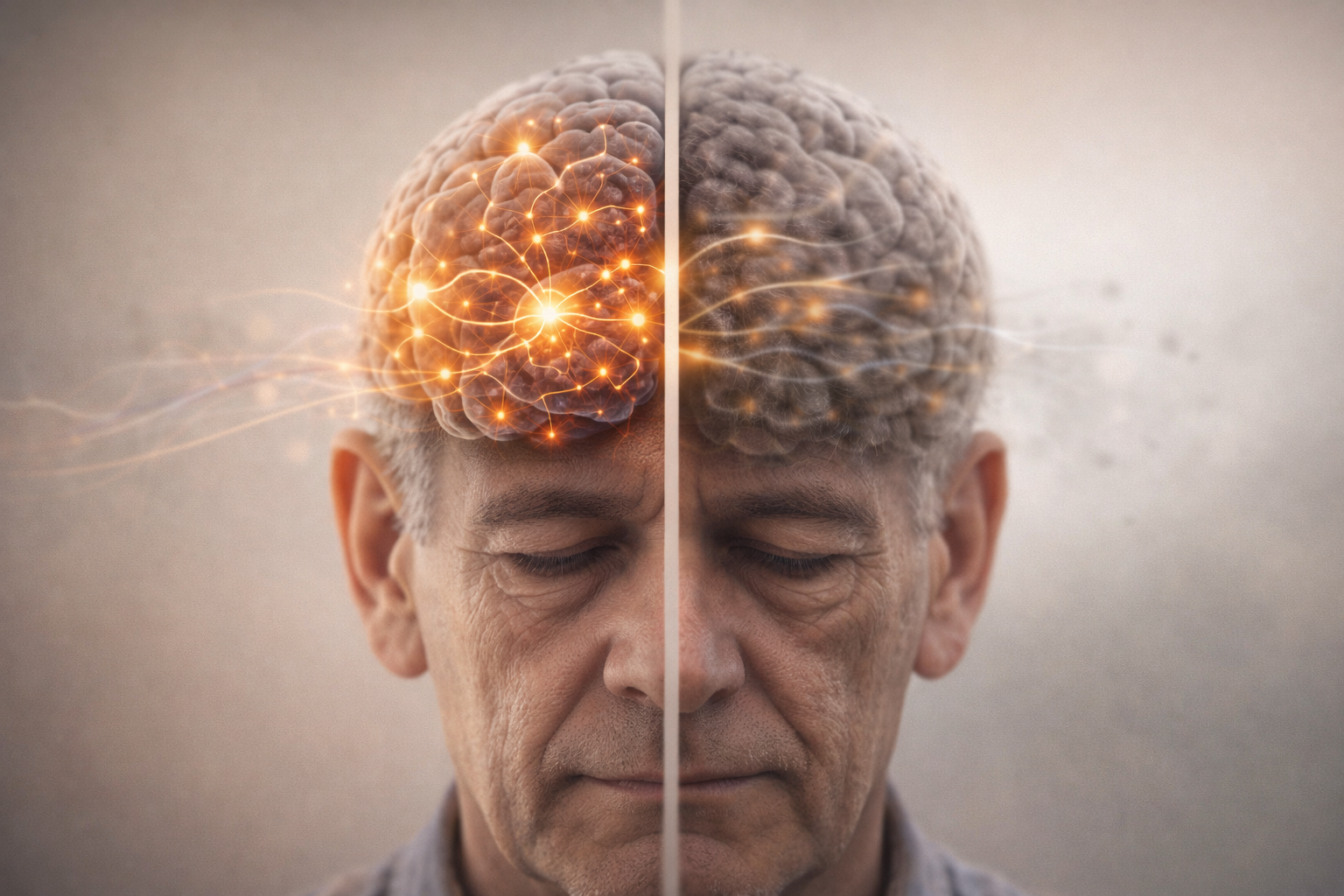Making dementia
prevention possible
Your senses are your brain.
Not connected to it.
Not reporting to it.
The same thing.
The Checklist That Could Save Your Mind
Most people don’t know this, but your brain’s health depends on your senses. This free checklist reveals the 10 essential secrets you need to stay sharp.

Smell changes?
That's not your nose - it's your brain.
Hearing changes?
That's not your ears - it's your brain.
They change 5-15 years before memory does.
50% of decline is missed
We adapt.
We compensate.
We miss the window.
Audiologists track hearing.
Eye doctors track vision.
ENTs track smell and taste.
Nobody monitors them together - or over time.


5 Senses
1 Sensory Score
Build a longitudinal record through annual measurement, while interventions still work.
Stay sharp NOW. Not just later.
Make brain-span match life-span
We're living longer than any generation in history.
Our brains won't keep up - unless we catch changes early.


Your Brain's Vital Sign
Smell, taste, hearing, vision, and touch change years before memory does. We make those signals measurable.
How Does It Work?
1. Start with The Kit
Guided tests for smell, taste, vision, hearing, and touch.
2. Check In Annually
Use it at home, with family, or in a group.
3. Reveal Change Over Time
See shifts you won't notice on your own over time.
Half of sensory changes go unnotice.
4. Act Early
Small fixes today protect your brain for years.

Protect your mood, focus, and longevity

Built by scientists. Backed by research. Ready for you.
Our protocols are built by top researchers from Johns Hopkins and Columbia. Every test is grounded in peer-reviewed science—simple enough to do at home, powerful enough for use in clinical studies.
Bring SuperSenses to Your CommunityThe Latest Science

At-Home Sense Tests Backed by Research and Developed by Doctors

The sense of smell is often one of the earliest indicators of cognitive decline, including conditions like Alzheimer's disease. Changes in your ability to detect odors can occur before other symptoms, making it a critical marker for early detection. Regularly testing your sense of smell can provide early warnings of cognitive health issues.
Test Method: We use the 12-Odorant Scratch & Smell Test to evaluate your ability to detect and identify various odors. This test provides valuable insights into your olfactory function, helping you monitor changes over time.
"I saw multiple specialists because I thought I was losing my sense of taste. No one tested my sense of smell—until SuperSenses showed me that was the real issue."
Mel - SuperSenses User

Frequently Asked Questions
Have questions? Let's chat
Drop us a message — we’re here to answer questions and point you in the right direction.










